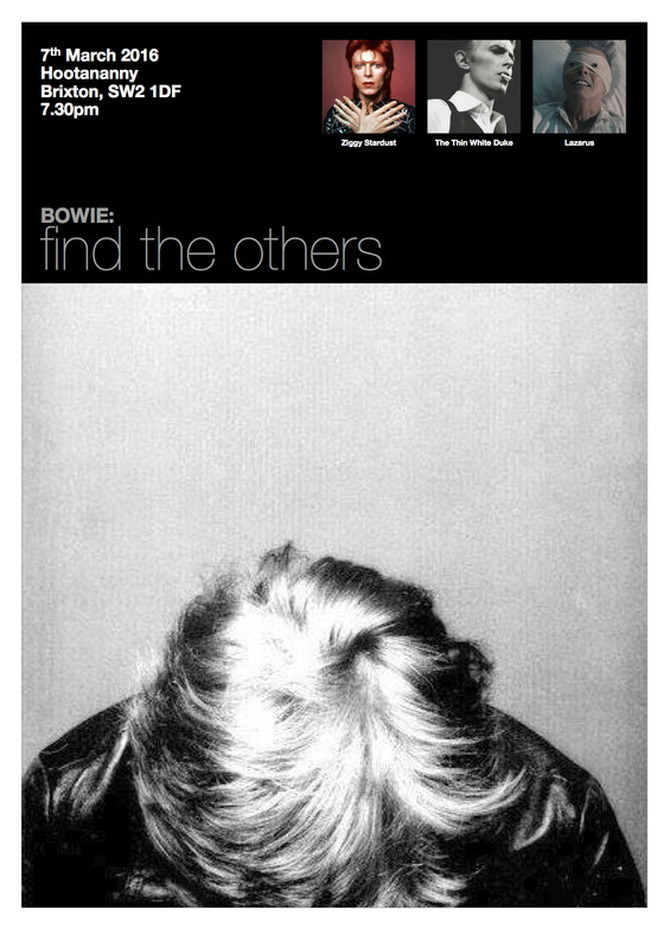Abdulmajid has an infinitely long and sad face. Night falls. ‘It’s amazing how weirdly alone I feel,’ David Bowie says to Abdulmajid, ‘like I’m actually myself here, tonight, with you, but I’d rather be with my little China girl. Sorry, Abdulmajid,’ David Bowie says. The only other surprise of the night is a sudden star shower at around 3am. ‘Shooting stars!’ David Bowie says, but Abdulmajid explains that they’re not in fact shooting stars, they’re shots fired by terrorists from Somalia across the Red Sea. The tracers burst above their heads in starshells of orange, green, blue, and a harsh white, and the deeper colour of explosions. ‘I wonder what Somali women are like?’ David Bowie thinks.
Abdulmajid has seen these displays of colour in the nighttime desert a thousand times before and soon falls asleep, but David Bowie can’t sleep. He is thinking about all the love he has lost—in particular, a girl he knew in Berlin, a much younger girl with whom he fell in love, although she didn’t love him back, which made David Bowie love her even more. She couldn’t have been more than 14 years old. She was just a little girl with grey eyes. Her name was Christiane and she stirred a deep yearning in him. She refused to tell him her surname because she was afraid he would look her up in the telephone directory and lay siege to her home. But he knew her surname began with an F and, she was right, he would have done exactly as she feared. Things came to a head one night when David Bowie was mooning around her and she snapped. She said, ‘You’re the kind of man I’d sleep with only because I was too tired not to.’ David Bowie never saw her again and heard from a mutual friend that she had moved on to Zürich. Eventually, he got fed up of all the electric blue rooms in Berlin, with their high ceilings and huge windows. Too much light. Besides, Iggy was getting on his nerves, so he left Berlin.
As dawn approaches, David Bowie has been running through morning’s thoughts and fantasies and is now full of tension and fear. He realises that he and Abdulmajid are in danger, but then he has always put himself in dangerous situations—emotionally, mentally and physically—in order to produce any good work. Living in Berlin, and leading such a spartan life there, was something new for him. Forcing himself to live according to the restrictions of the city was good. Every day when he got up, he enjoyed cycling to the Hansa studios to work and then going to sleep every night and dreaming under his paintings. And, at the same time, he had locked himself into his own timezone, disconnected from the city. David Bowie knows that every timezone he creates for himself only exists for him—not everyone can exist in the same now at the same time. Only in memory can different timezones co-exist. And then, just as quixotically, he sometimes felt the need to move on and make a new career in a new town, and so he packed a bag and moved on. But where to now? He has written songs in all the Western capitals and he has always got to the stage where there isn’t any friction left between him and the city. They became too retro-nostalgic, or decadent. In London, he was Ziggy the alien, in LA he was the Philly soul boy and he was the Thin White Duke all over America and Europe, but he is no longer able to compose in London or LA, nor Paris, nor Berlin. ‘Where am I now? David Bowie thinks. ‘What have I done?’
David Bowie knows that, no matter how much he strives, he is never ‘finished’—he is only ever ‘becoming’. Looking at the sand stretching endlessly in every direction, he says, ‘I am not who I am.’ He has been so many men in vain but he wants to be one and himself. Now, he will ‘become’ himself, naked, with no more masks to hide behind. He will rise like Lazarus from the dead skins he has shed. This will be a new start for him. Just then, a small tree appears in front of him, hovering above the sand and shimmering like a hologram. It is covered in moss and is sprouting fresh, new leaves and vines all the time—the whole beautiful vision is an offering of a new lease of life. ‘Heaven loves ya,’ David Bowie thinks. He used to have ‘believers’ who believed in him, but after this night David Bowie realises he doesn’t need them anymore. He knows what he must do now—he must make one final, magical movement from Kether to Malkuth. The tree vanishes. He wakes Abdulmajid, who has slept soundly throughout this whole episode. ‘Come on, mate,’ David Bowie says. ‘Time to go.’ ‘What about the heroine?’ Abdulmajid asks. ‘Forget about her. I have to move on.’ ‘David, you never settle, never find a home in one place, always moving.’ ‘Yes, I know,’ David Bowie smiles, ‘Ain’t that just like me.’
Originally written for and performed at ‘#Bowie: find the others’, Brixton BookJam Monday 7th March 2016.

